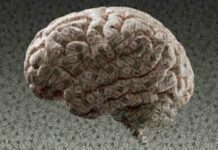“Why We Need to Abandon the Disease-Model of Mental Health Care”
In a guest blog for the Scientific American, Peter Kinderman takes on the “harmful myth” that our more distressing emotions can best be understood as symptoms of physical illnesses. “Our present approach to helping vulnerable people in acute emotional distress is severely hampered by old-fashioned, inhumane and fundamentally unscientific ideas about the nature and origins of mental health problems.”
“A Checklist to Stop Misuse of Psychiatric Medication in Kids”
Former DSM-IV task force chair Allen Frances takes aim at the “massive overuse of psychotropic medication in children” in an article for the Psychiatric Times. He shares a checklist of questions for doctors to consider before prescribing medication to children. Frances warns: “We simply don’t know what will be the long-term impact of bathing a child’s immature brain with powerful chemicals.”
Reflections on How We Think About and Respond to Human Suffering, Existential Pain, and...
Any attempt to establish an alternative diagnostic system to the predominantly biologic DSM-5 classifications or to initiate a transformation of the individually oriented mental health treatment systems needs to critically explore how, not only what, we think about health and healing, about mental and emotional suffering, about traumatic experiences and injustices, and the multiple forms of pain that are part of our human existence. The broad critique of the DSM-5 by so many national and international organizations and individual colleagues will in the end not be powerful and far reaching enough without this inquiry into the foundations of our thinking and without reflection about our ways of thinking.
Wired Magazine on the DSM and Allen Frances
Article from Wired magazine in 2010 about Allen Frances, lead editor of the DSM-IV, and his criticism of both the DSM-IV and the upcoming DSM-5.
Article →
“Drop the Language of Disorder”
Peter Kinderman, John Read, Joanna Moncrieff and Richard Bentall write, in Evidence-Based Mental Health this month, that "While some people find a name or...
Thinking about Alternatives to Psychiatric Diagnosis
I want to follow up my first post by outlining the principles of possible alternatives to psychiatric diagnosis – that is, alternatives in addition to the most obvious one, which is simply to stop diagnosing people.
Here’s Why I Wouldn’t Use the Mental Health System
In this piece for The Spinoff, Graham Panther, a consultant in Australia's mental health system, speaks to some of the shortcomings of mainstream mental health support....
How Big Pharma Infiltrated the Boston Museum of Science
From CounterPunch: Last spring, an exhibit promoting mainstream mental health ideologies debuted at the Boston Museum of Science. The exhibit was funded by NAMI and...
Anyone Can Be Trained to Hallucinate
From Flipboard: In a recent study on auditory hallucinations, all participants — not just those who had been diagnosed with psychosis — experienced conditioned hallucinations. The study...
How It Came to Be that Sadomasochists Are No Longer “Mentally Ill”
-The Atlantic reports on the history of pathologizing and de-pathologizing different sexual practices.
United Nations Report Calls for Revolution in Mental Health Care
In a new report, the United Nations Special Rapporteur on the right to health, Dr. Dainius Pūras, calls for a move away from the biomedical model and “excessive use of psychotropic medicines.”
Race and Class Affect Teacher Perceptions of ADHD Medication Use
Study uncovers teachers’ attitudes surrounding ADHD medication use and examines the influence of race and social class on teacher beliefs.
Does DSM-5 Matter? Yes; but not for Psychiatrists
What makes the DSM so pernicious is that it is a cultural document whose influence transcends not only psychiatric practice but also the Western civilization from which it originates. Each revision of the DSM rescripts and reimagines how we make sense of our experiences, reinterprets what thoughts, feelings and behaviors are socially sanctioned, and ultimately what it means to be human.
Love It, Hate It … Write Your Own Review of the DSM-5 on Amazon
Greetings, MIA readers. Would you like to write your own review of the DSM-5 (even if you haven’t read it, never mind bought it.) I’ve done neither, but I’ve read, talked, written enough about it to have an opinion. Write your own review of the DSM-5 on Amazon …Here's the link
Does ‘Mental Illness’ Exist?
In this interview for ABC Australia, leading psychology professor Peter Kinderman discusses why we need alternative ways of understanding and supporting people in distress that take...
“The D.S.M. and the Nature of Disease”
Gary Greenburg writes in the New Yorker that "The D.S.M. has enormous impact on the public health. It determines which conditions insurers will cover,...
German Psychologists Declare “the Drugs Don’t Work”
Jürgen Margraf and Silvia Schneider, both well-known psychologists at the University of Bochum in Germany, claim that psychotropic drugs are no solution to mental...
Diagnosing Donald Trump, and His Voters
From The New Yorker: In a new book, The Dangerous Case of Donald Trump, a group of mental health experts warn the public of Donald Trump's...
Diagnosing Conflict-of-Interest Disorder
Article by Lisa Cosgrove from June, 2010 reviewing conflicts of interest related to the DSM.
Article → ...
Why I Won’t Buy the DSM-5
As the medical director of a community mental health center, my colleagues look to me for guidance on how to approach the new edition of the DSM. How many should we buy? How much time should be devoted to staff training? This is my answer.
Joshua Gordon Wants to Remake Mental Health Care
From Undark Magazine: Joshua Gordon, the new director of the National Institute of Mental Health, plans to invest heavily in brain research; he hopes to...
Dissecting the DSM Debate: Researchers Analyze Critiques Across Audiences
A new study systematically explores critical reactions to the DSM-5 and identifies unifying themes.
When “Recovery” Feels Like a Trap
People in roles of power in the mental health system often don’t realize how much complicity they have in actually creating the symptoms they claim are biologically-based in individuals with psychiatric labels.
Brain Science Doesn’t Explain All
In an essay in the Sydney Morning Herald, a psychiatrist explores how the same blind faith in reductionist economic models that lead to a global...
What Caused the American Child Bipolar Epidemic?
-Psychiatrists analyze why US bipolar diagnoses in children and adolescents increased 40 times over in less than 10 years.



















